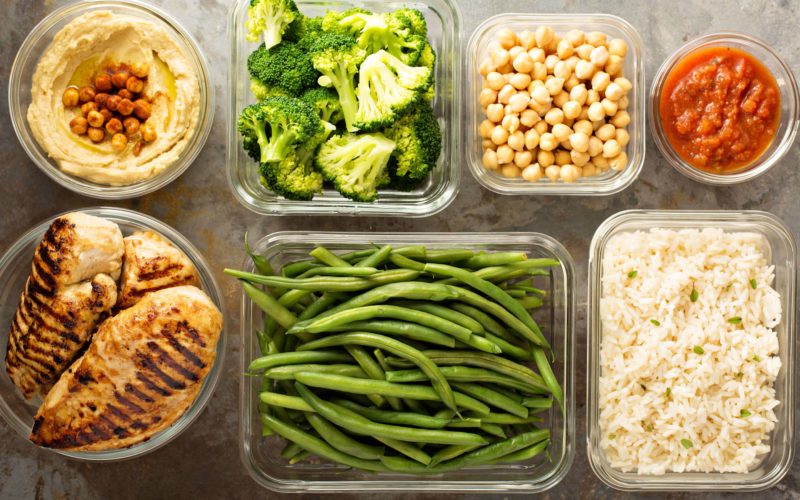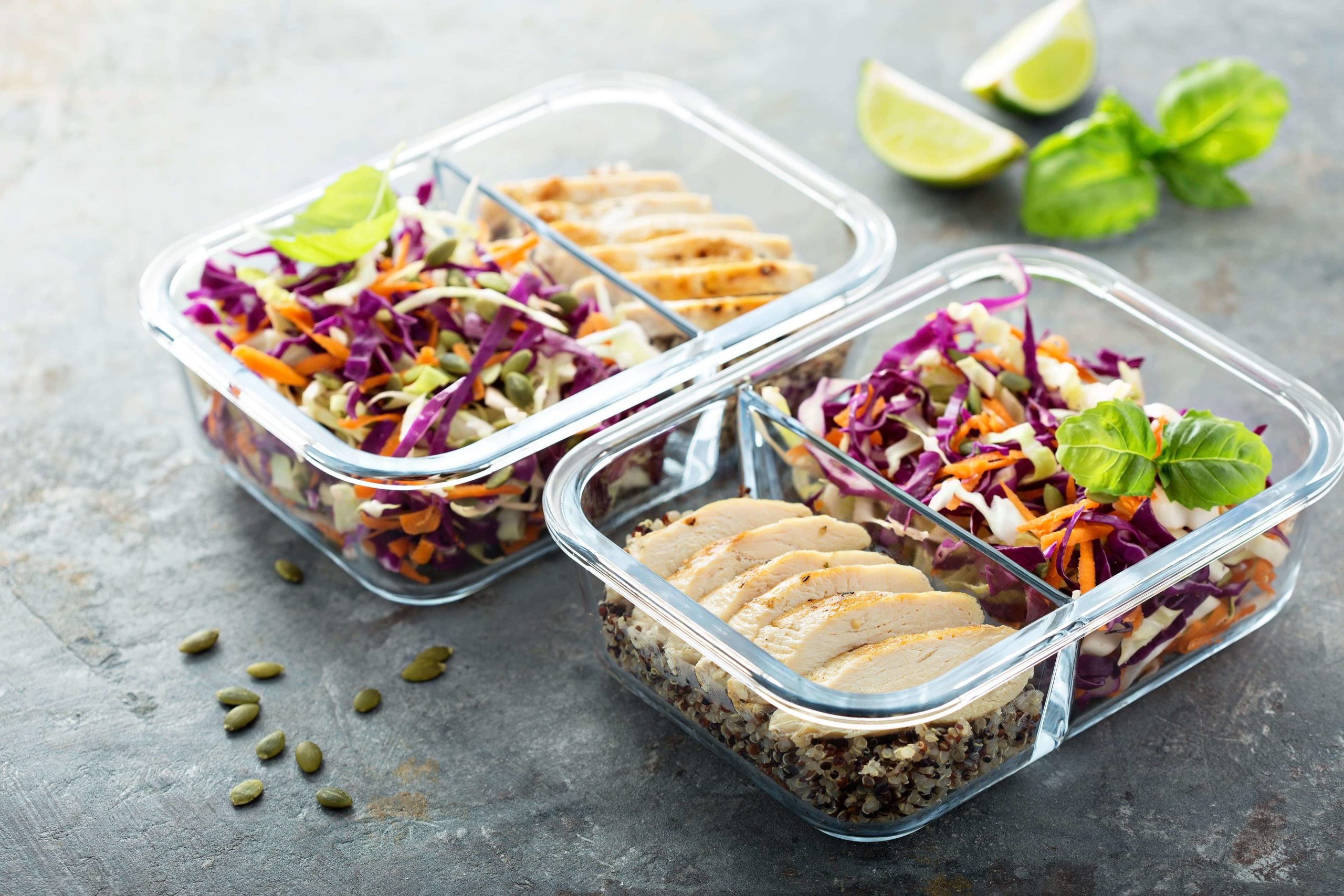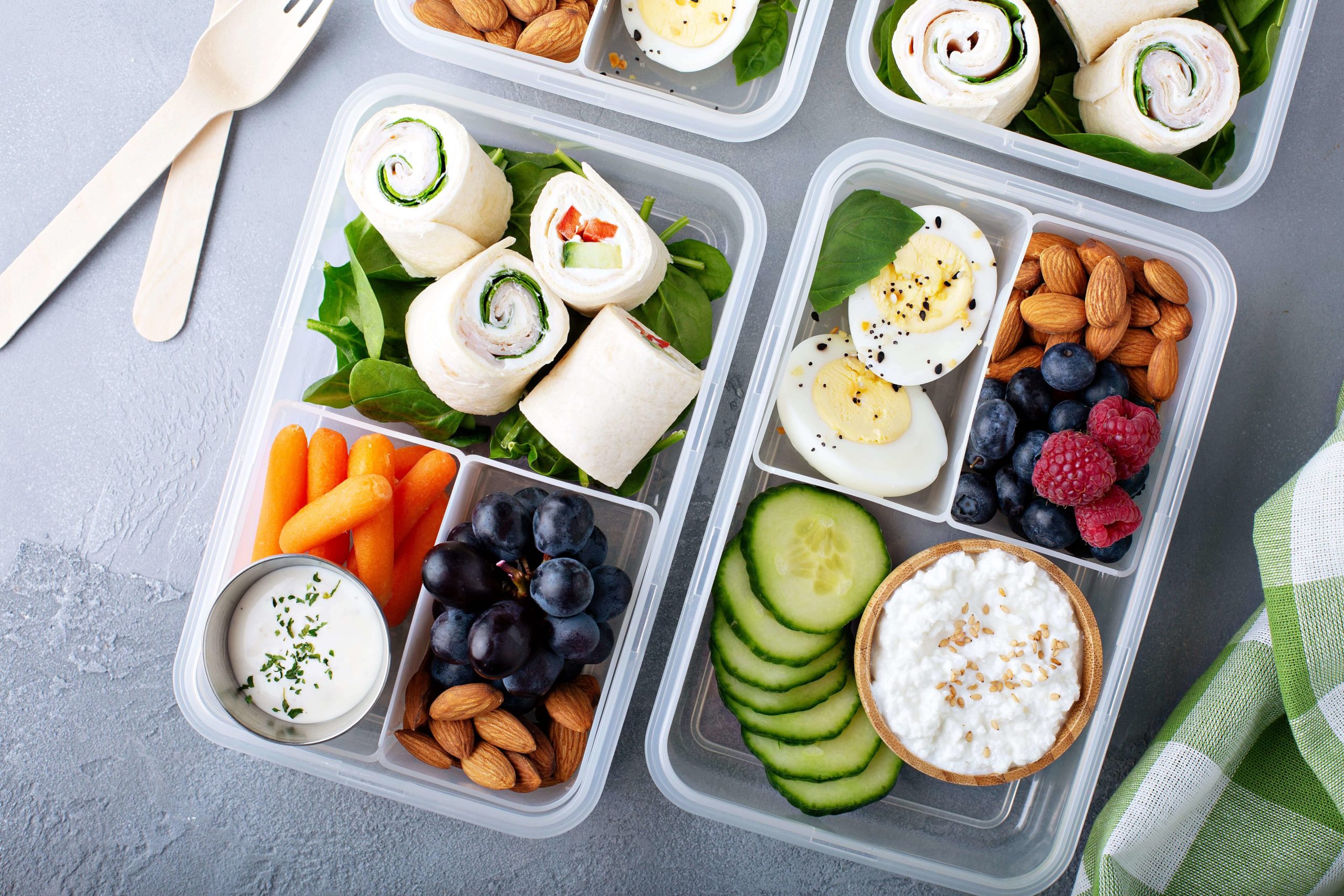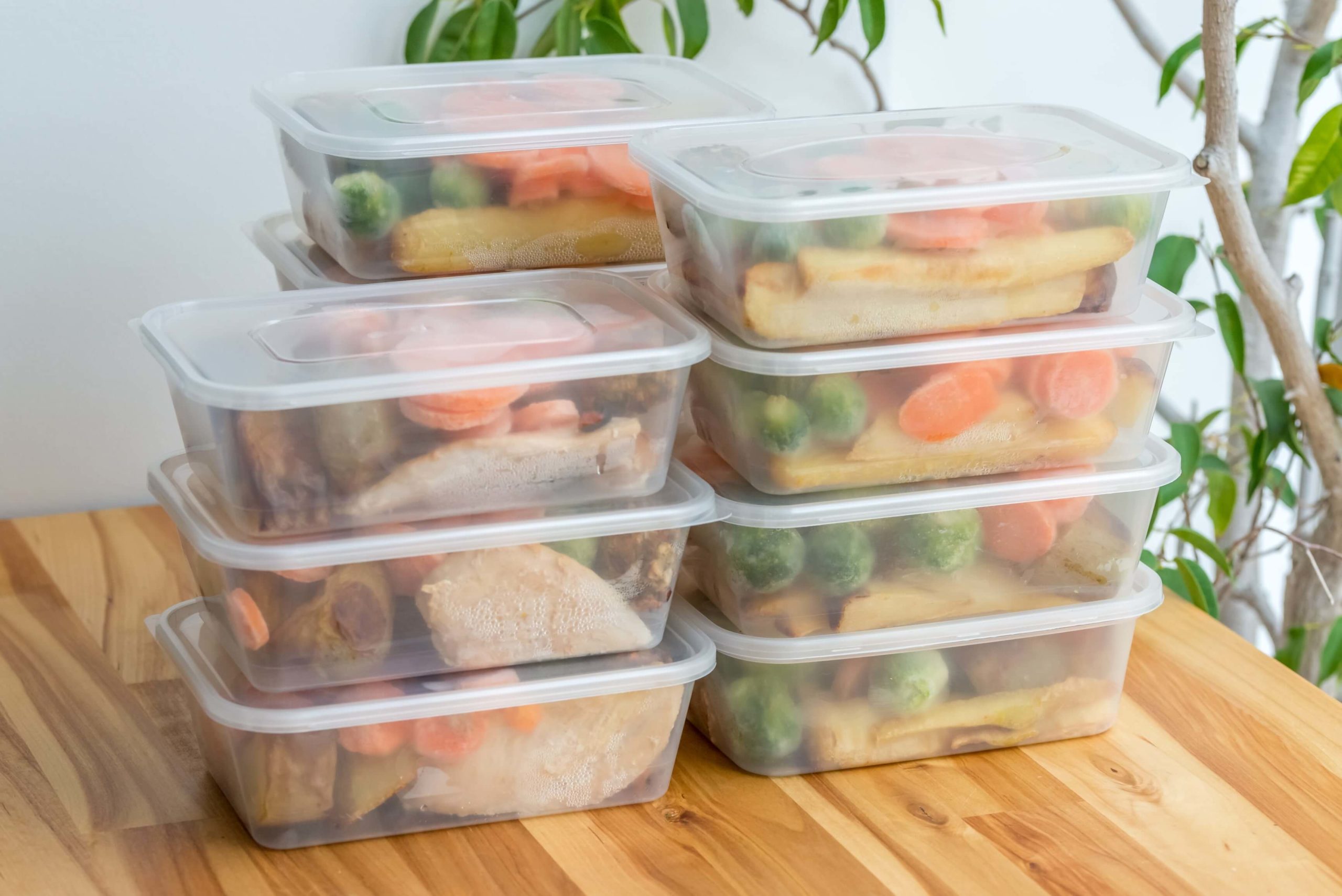Meal Planning and Prepping Tips

Meal prepping and planning has become more popular in the past few years for numerous reasons. Whether you are on a strict diet or simply struggle to find the time to cook during the day, learning how to meal plan may be just the solution for you.
In this blog, we’ll provide you with different meal planning and prepping tips that can help you get started. We’ll also share some benefits to meal prepping that can lead you to a healthier lifestyle.
What is Meal Prepping & Planning?
Meal prepping and planning is exactly what it sounds like. It’s deciding what you’re going to eat through the week and having those meals ready in advance. Depending on why you’re meal prepping, you can choose what you’ll eat for the rest of the week and have your food ready to go.
When it comes to meal planning and prepping tips, there are a few ways you can get started. You can prep based on your schedule, food preferences, and even set goals for what you’d like to get out of it like weight loss, muscle gain, or more.

Benefits of Meal Prepping
Before we break down meal planning and prepping tips, you may be wondering what the benefits are. No matter why you choose to start meal prepping, you’ll find that there are several ways it will improve your lifestyle as a whole. Below, we’ve listed the four biggest benefits of meal prepping.
1. Save Time & Money
One of the greatest benefits of meal prepping and planning is the amount of time and money it allows you to save. People with busy schedules often don’t have the time to make meals throughout the day. Meal prepping and planning means you can have your meals ready in advance and you won’t waste money on ordering out every day.
Additionally, you’ll create less food waste (and save money) because you’ll only buy ingredients you plan to use that week.
2. Build a Better Relationship with Food
Meal prepping and planning can help you reinvent and strengthen your relationship with food. Choosing which meals you’re going to eat and how to prepare them will encourage you to learn more about nutrition. If you are properly planning your meals, you’ll need to make sure you’re getting enough nutrients to improve your energy level throughout the day and week.
3. Manage Your Portion Sizes
Managing portion sizing can be challenging. This can especially become an issue if you’re too busy to cook and end up skipping meals, which can lead to overeating. Prepping and planning your meals ahead of time allows you to create the correct portion sizes in advance. That way, you won’t have to deal with the issue of your eyes being bigger than your stomach.
4. Gain New Skills
It’s always fun to gain new skills. Making meals ahead of time encourages you to become a better cook. You won’t be relying on takeout or processed frozen foods because you’ll be learning how to make new and delicious meals all by yourself. It can also give you a chance to broaden your tastes and try new recipes that soon become favorites.
Who is Meal Prepping for?
Meal prepping can be for everyone! People have many different reasons for planning and prepping their meals in advance. You may have a busy schedule, or you’re trying out a new diet, while some others simply like to be prepared for the week ahead.
Meal planning and prepping tips can be helpful to anyone, but there are some cases where it is used specifically to achieve certain goals. Two of the most common reasons for meal planning are weight loss or muscle gain. Below we’ll cover meal planning tips you can use to achieve either one of these goals and start living a healthier lifestyle.
Meal Prepping for Weight Loss
The key to meal prepping for weight loss is to maintain a balanced diet. This means you should focus on including a source of protein, fiber, and healthy fat in every meal or snack. Below we’ve listed some good meal prep foods if your goal is to start losing weight.
Fruits:
- Blackberries
- Blueberries
- Bananas
- Apples
- Grapefruit
Grains:
- Oats
- Brown rice
- Whole grain pasta
- Quinoa
Non-starchy vegetables:
- Leafy greens
- Onions
- Mushrooms
- Tomatoes
- Peppers
- Asparagus
- Cabbage
- Carrots
- Cucumbers
- Broccoli
- Cauliflower
- Celery
Proteins:
- Salmon or tuna
- Shrimp
- Chicken breast
- Lean ground beef and turkey
- Eggs
Legumes:
- Chickpeas
- Black beans
- Lentils
- Kidney beans
Nuts and seeds:
- Sunflower seeds
- Pistachios
- Almonds
- Natural peanut butter
- Pumpkin seeds
- Cashews
Healthy fats:
- Avocado
- Hummus
- Tahini
Dairy/Non-dairy substitutes:
- Low-fat milk
- Unsweetened non-dairy milk
- Greek yogurt
Knowing which foods to include in your diet is important, but it’s also good to know which types of foods to stay away from. The most important foods to limit are ultra-processed foods, added sugars, and nutrient-poor foods. This doesn’t mean you need to stop eating your favorite snacks or treats, just remember that balance is key. Focus on eating nutrient-rich foods, and treat yourself every once in a while.

Meal Prepping for Muscle Gain
When it comes to meal prepping for muscle gain, macronutrients are the most important. These types of nutrients include proteins, carbohydrates, and fat.
Muscle gain requires long-lasting energy, which is why carbs and fats play an important role. Below, we’ve listed some of the best types of macronutrients you can incorporate into your diet.
Lean proteins:
- Egg whites
- Chicken breasts
- Turkey
- Whitefish
- Shrimp
- Grass-fed beef and steak
- Lowfat yogurt
- Cottage cheese
Healthy Fats:
- Salmon
- Nuts
- Seeds
- Avocado
- Olives
- Cacao
- Tahini
- Peanut butter
- Coconut milk
Whole grains:
- Brown rice
- Quinoa
- Oats
- Farro
- Millet
- Barley
- Buckwheat
Starchy vegetables:
- Sweet potatoes
- Corn
- Beans
- Peas
- Lentils
- Root vegetables
- Brussel sprouts
- Lima beans
How to Start Meal Prepping In 3 Easy Steps
Starting is the first (and sometimes the hardest) step to take. Learning how to start meal prepping will prepare you as you begin to incorporate it into your daily routine. Here are three steps to get you started.
1. Plan Your Meals
This is the first and most obvious step when learning how to start meal prepping. As you begin planning your meals, start with the most important question. What are you trying to achieve with meal planning?
Knowing what your end goal is will help you to pick which meals to eat at which times. You should also turn to your calendar to help you decide when the best day is for you to get your grocery shopping done and prep for the week.
2. Make Your Grocery List
As you create your grocery list, make sure you note all of the ingredients you will need. You don’t want to be halfway through prepping your meals and find yourself missing an ingredient or two.
Another important thing to remember is that you should only buy groceries for the upcoming week. One of the key points of meal planning is to save money and eliminate food waste.
3. Start Prepping
Each weekend, make sure you block 2-3 hours off on your calendar so that you have a substantial amount of time to prep. This time may vary depending on what meals you’re prepping and how many.
Some people only prep for dinner while others choose to prep for breakfast, lunch, and dinner. You may have to experiment with how much time it takes you, but eventually, you can incorporate it into your normal weekly routine.

Meal prepping and planning is beneficial for a lot of reasons and can really help you to start living a healthier lifestyle. However, learning about meal planning and prepping tips can be overwhelming for some people. Fortunately, there’s a variety of resources available to help beginners build a meal prep routine that will make the transition smoother.
The most important thing to remember is to take it week-by-week. Meal prepping should relieve stress, not add to it. Start slow and don’t overwhelm yourself with difficult recipes. You can always work your way up to a stricter routine, as long as you stick with it.
Ready to start meal planning? Stauffers of Kissel Hill offers a variety of fresh foods and groceries you can incorporate into your daily diet.
